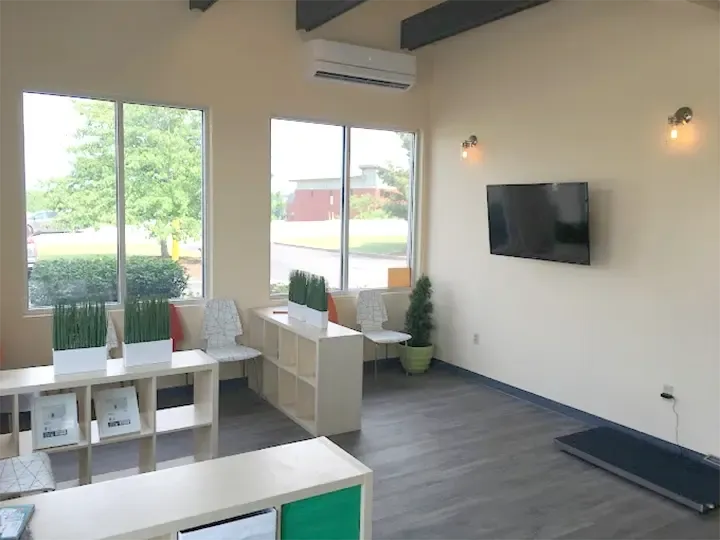As devoted cat parents, recognizing when your feline friend needs immediate medical attention is paramount. While our beloved cats are masters of disguise when it comes to illness, understanding the signs of a true emergency and knowing where to find reliable Cat Urgent Care Near Me can be the difference between a swift recovery and a more severe outcome. This comprehensive guide will equip you with the knowledge to identify critical situations, understand what to expect at an urgent care clinic, and efficiently locate the help your cat deserves.
Every cat owner knows the panic that can set in when a pet suddenly falls ill or gets injured. Unlike routine veterinary visits for wellness consultations and vaccines, urgent care addresses immediate health concerns that are not life-threatening but require prompt attention. This ensures your cat receives timely intervention for conditions that can quickly worsen if left untreated. Having a plan for these unexpected events is a crucial part of responsible pet ownership.
When Is It a Cat Urgent Care Emergency? Recognizing the Signs
Distinguishing between a minor issue and a situation requiring immediate veterinary attention can be challenging. Cats often hide their pain or discomfort, making it crucial for owners to observe subtle changes in behavior or physical condition. Being aware of these indicators is the first step in seeking timely cat urgent care near me.
Common Symptoms Requiring Immediate Attention
Certain symptoms unequivocally signal the need for urgent veterinary care. If your cat exhibits any of these, contact your nearest clinic immediately. These include sudden weakness or collapse, difficulty breathing (gasping, labored breathing, open-mouth breathing), severe vomiting or diarrhea (especially with blood), inability to urinate or pass stools, sudden lameness or inability to bear weight on a limb, known ingestion of toxins (like certain plants, medications, or household chemicals), or any trauma such as a fall or car accident. Persistent coughing or gagging, particularly if it seems like they are choking, also warrants immediate investigation.
Additionally, neurological symptoms like seizures, disorientation, or sudden blindness are critical and require emergency intervention. Any sudden and severe change in your cat’s demeanor, such as extreme lethargy or aggression, can also be a red flag. Prompt action in these cases can significantly improve your cat’s prognosis.
Less Obvious Signs Not to Ignore
Beyond overt emergencies, there are more subtle signs that suggest a need for urgent care, even if not immediately life-threatening. These could include a sudden loss of appetite or refusal to drink water for more than 24 hours, persistent hiding or changes in usual hiding spots, changes in litter box habits (e.g., urinating outside the box, straining to urinate, or significantly increased/decreased frequency), or unusual vocalizations like excessive meowing or crying. A sudden change in weight, either gain or loss, without an obvious reason, also merits a vet visit.
Minor injuries, such as limping without obvious pain or small cuts, should also be assessed promptly to prevent infection or further complications. While these might not seem as dramatic as a severe trauma, they can indicate underlying issues or lead to more serious problems if ignored. Paying close attention to these nuances is vital for your cat’s long-term health. If your cat exhibits digestive upset, it’s always wise to consult a vet, similar to how one would monitor if can worms cause upset stomach in dogs.
 A cat and a dog are sitting together in a vet clinic, looking calm and well-cared for.
A cat and a dog are sitting together in a vet clinic, looking calm and well-cared for.
What to Expect at a Cat Urgent Care Clinic
When you arrive at a cat urgent care near me facility, the process is typically streamlined to address your pet’s immediate needs. The staff understands the stress and concern you’re feeling and will work efficiently to assess your cat’s condition.
Diagnostics and Treatment Options
Upon arrival, a veterinary technician will usually perform an initial triage to assess your cat’s vital signs and the severity of their condition. This helps prioritize cases and ensures the most critical patients receive immediate attention. The veterinarian will then conduct a thorough physical examination. Depending on the symptoms, they may recommend various diagnostic tests. These can include blood work (full in-house and outside lab capabilities are common), X-rays to check for fractures, foreign bodies, or organ issues, ultrasounds for soft tissue examination, or even endoscopy for internal viewing.
Once a diagnosis is made, the vet will discuss treatment options. This might involve medication, fluid therapy, wound care, or in some cases, surgery. Many urgent care clinics have full surgery suites for routine procedures like spays, neuters, and mass removals, as well as the capability to perform emergency surgeries. For instance, if your cat has ingested a foreign object, surgical intervention might be necessary. The goal is always to stabilize your cat and address the root cause of their distress.
Understanding Costs and Payment Options
Urgent veterinary care, by its nature, can be more costly than routine check-ups due to the specialized equipment, immediate attention, and after-hours staffing required. Prices for urgent care visits often start with an examination fee, and then additional costs accrue based on the diagnostics, treatments, and medications needed. For established patients who have had an annual exam recently, some clinics may even offer a discount on the exam fee.
It’s important to discuss estimated costs with the veterinary team upfront. Many clinics offer various payment solutions, including payment plans, third-party financing options like CareCredit, or accepting pet insurance. Wellness packages are also available at many facilities, offering comprehensive care including vaccines and general health consultations, ensuring your pet gets the best care year-round. While costs can be a concern, the primary focus in an urgent situation is your cat’s health and well-being.
How to Find “Cat Urgent Care Near Me”
Locating a reliable cat urgent care near me when time is of the essence requires a bit of foresight. It’s best to identify potential clinics before an actual emergency arises.
Preparing for Your Visit
Before you even step out the door, take a moment to gather essential information. If possible, call the urgent care clinic while en route to provide them with your cat’s symptoms and an estimated time of arrival. This allows the staff to prepare for your cat’s specific needs. Bring any relevant medical records, a list of current medications, and details about recent changes in behavior or diet. Transport your cat in a secure, comfortable carrier to minimize stress during the journey.
Being prepared can significantly reduce anxiety for both you and your cat and allows the veterinary team to act more quickly and effectively. For those considering what kind of food contributes to general health, researching options like best store bought wet dog food might be a good idea for dogs, but always consult your vet for your cat’s specific dietary needs.
 A brightly lit, modern veterinary clinic interior, showing a welcoming reception area.
A brightly lit, modern veterinary clinic interior, showing a welcoming reception area.
Choosing the Right Clinic
When searching for cat urgent care near me, consider clinics that offer walk-in appointments for urgent issues, often available seven days a week during extended hours. Some clinics are also the official animal hospitals for local teams, such as being the Official Animal Hospital of the Pittsburgh Penguins®, which can indicate a high standard of care and community involvement. Look for facilities with comprehensive services including diagnostics, surgery, and specialized care for exotic pets if you have them.
Reputation and testimonials from other pet owners can also be valuable. Many modern veterinary hospitals offer convenient options such as online scheduling, texting for updates, and dedicated apps to manage appointments and medical records, streamlining communication and access to care. It’s also worth noting if a clinic offers discounts for seniors, veterans, first responders, or service animals, reflecting their commitment to the community. While the focus is on cats, understanding the breadth of services, from best dog food for shih tzu puppy to english bulldog care, can give insight into a clinic’s general expertise in diverse pet needs.
Conclusion
The health and well-being of your cat are undoubtedly among your top priorities. Being prepared for a medical emergency by knowing the signs of distress, understanding the services offered by urgent care clinics, and knowing how to find reliable cat urgent care near me is an essential aspect of being a responsible pet owner. Always prioritize prompt veterinary attention for any concerning symptoms to ensure your feline companion receives the best possible care. Remember, early intervention can often lead to more positive outcomes and a quicker recovery for your beloved cat. For more insights on maintaining your pet’s health, explore our other articles on pet care!
